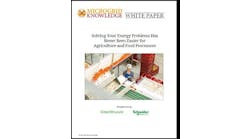New York has issued a request for proposals (RFP) for a researcher to help it identify industrial operations that offer the greatest opportunities for beneficial electrification, carbon reduction, energy efficiency and renewable energy.
The New York State Energy and Research Development Authority (NYSERDA) said that the research will focus on industries, industrial facilities and end uses. The state hopes the work will help it achieve its climate and community protection goals for 2050.
New York intends to create a comprehensive statewide industrial stock baseline through a two-phased approach:
- Phase One of the research will establish an industrial baseline using existing secondary data and research. The project will identify key industrial subsectors and their energy-using equipment, operation and usage patterns, process heat loads, energy intensity, and penetration of clean energy equipment and practices.
- Phase Two of the research will collect primary data through electronic surveys, phone interviews and site visits.
The data will be available to state officials to benchmark, develop, implement and evaluate clean energy programs for the industrial sector.
In addition, program administrators and industrial companies can use the data in creating their business and marketing strategies, internal operations and capital expenditures. The goal is to more effectively target and engage the industrial market in energy efficiency, process innovation, beneficial electrification, energy storage and renewable opportunities to optimize their operations and increase their global competitiveness.
The intelligence developed in this industrial stock study also will be used to set more accurate baselines for incentive programs.
In weighing contract winners, the RFP will give substantial consideration to expertise and performance conducting similar studies, cost efficiency of the proposal, and value to the state. Additional consideration will be provided to proposals from women- and minority-owned business.
Proposals are due by 3 p.m. EST, February 8, 2021. For more details, see NYSERDA’s RFP 4597 Solicitation Detail Page.






